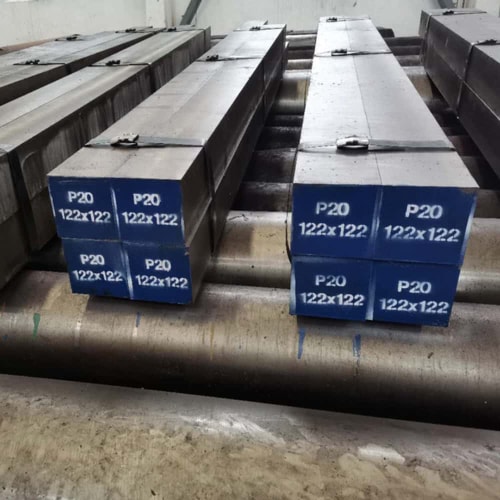Introduction

P20 plastic mould steel is a widely used material in the tooling and mold-making industries, renowned for its excellent properties and versatility. This comprehensive guide delves into the unique properties, various applications, and benefits of using P20 plastic mould steel. We will also explore the processes involved in working with this material and provide insights into its role in different industries.
Understanding P20 Plastic Mould Steel
What is P20 Plastic Mould Steel?
P20 plastic mould steel is a low-alloy steel known for its excellent machinability, toughness, and uniform hardness. It is commonly used in the manufacturing of plastic injection molds and die-casting dies. The composition of P20 steel typically includes chromium, molybdenum, and nickel, which contribute to its favorable properties.
Properties of P20 Plastic Mould Steel
Chemical Composition
P20 plastic mould steel is composed of several key elements that give it its unique properties:
- Carbon (C): 0.28-0.40%
- Silicon (Si): 0.20-0.80%
- Manganese (Mn): 0.60-1.00%
- Chromium (Cr): 1.40-2.00%
- Molybdenum (Mo): 0.30-0.55%
- Nickel (Ni): 0.30%
This composition ensures that P20 steel has good hardness, toughness, and wear resistance, making it ideal for mold-making applications.
Mechanical Properties
P20 plastic mould steel offers a balanced combination of strength and toughness:
- Hardness: Typically 280-320 HB (Brinell Hardness)
- Tensile Strength: 1,000-1,200 MPa
- Yield Strength: 800-1,000 MPa
- Elongation: Approximately 20%
These mechanical properties make P20 steel suitable for producing durable and reliable molds that can withstand the stresses of repeated use in manufacturing processes.
Advantages of P20 Plastic Mould Steel
Excellent Machinability
One of the key advantages of P20 plastic mould steel is its excellent machinability. It can be easily cut, shaped, and polished, allowing for the precise creation of intricate mold designs.
Uniform Hardness
P20 steel offers uniform hardness throughout its structure, which ensures consistent performance and reliability of the molds. This property is crucial for maintaining the integrity and accuracy of the molded products.
Good Polishing and Texturing
P20 plastic mould steel can be polished to a high shine and textured to create detailed surface finishes on the molded products. This makes it ideal for applications where aesthetic quality and surface smoothness are important.
Versatility
P20 steel is versatile and can be used in a wide range of applications beyond plastic injection molding, including die casting, extrusion dies, and blow molds.
Applications of P20 Plastic Mould Steel
P20 plastic mould steel is used in various industries due to its excellent properties and versatility. Here are some common applications:
| Application | Description |
|---|---|
| Injection Molds | Used for creating plastic injection molds for producing high-volume plastic parts. |
| Blow Molds | Utilized in blow molding processes to create hollow plastic products like bottles and containers. |
| Die Casting Dies | Employed in die casting to form metal parts with complex shapes and fine details. |
| Extrusion Dies | Used in the extrusion process to shape materials by forcing them through a die. |
| Prototypes | Ideal for creating prototypes and pre-production samples due to its excellent machinability. |
| Automotive Parts | Widely used in the automotive industry for manufacturing various plastic components. |
Injection Molds
Injection molds made from P20 plastic mould steel are used to produce a wide range of plastic parts, including automotive components, consumer goods, and industrial products. The steel’s uniform hardness and good polishability ensure high-quality molded parts with consistent dimensions and smooth surfaces.
Blow Molds
P20 steel is also used in blow molding, a process for creating hollow plastic products like bottles, containers, and tanks. The steel’s durability and resistance to wear make it suitable for producing molds that can withstand the high pressures and temperatures involved in blow molding.

Die Casting Dies
In die casting, P20 plastic mould steel is employed to create dies for forming metal parts. The steel’s toughness and resistance to thermal fatigue are essential for producing dies that can handle the rapid cooling and heating cycles of the die casting process.
Extrusion Dies
P20 steel is used to manufacture extrusion dies, which shape materials like plastics and metals by forcing them through a die opening. The steel’s machinability and ability to achieve precise dimensions make it ideal for creating complex die shapes.
Prototypes and Pre-Production Samples
Due to its excellent machinability, P20 plastic mould steel is often used to create prototypes and pre-production samples. This allows manufacturers to test and refine their designs before committing to full-scale production.
Automotive Parts
The automotive industry relies on P20 steel for producing various plastic components, such as dashboards, bumpers, and interior trim pieces. The steel’s durability and ability to produce high-quality surface finishes are critical for automotive applications.
Conclusion
In conclusion, P20 plastic mould steel stands out as a versatile and reliable material in the mold-making industry. Its unique combination of excellent machinability, uniform hardness, and good polishing and texturing properties makes it an ideal choice for a wide range of applications, from plastic injection molds to die casting dies and extrusion dies. This steel’s ability to withstand various soil conditions and its resistance to wear and tear ensure its longevity and effectiveness in demanding manufacturing environments.
FAQ
What are the primary benefits of using P20 plastic mould steel?
P20 plastic mould steel offers excellent machinability, uniform hardness, good polishing and texturing properties, and versatility across various applications. These benefits make it a preferred choice for mold-making and tooling.
How does P20 plastic mould steel compare to other mold steels?
Compared to other mold steels, P20 offers superior machinability and polishability, making it ideal for creating high-quality plastic injection molds. While other steels like H13 and S7 may offer specific advantages in high-temperature or heavy-duty applications, P20 remains a popular choice for its overall balanced properties.
What industries benefit most from P20 plastic mould steel?
Industries such as automotive, electronics, consumer goods, and aerospace benefit significantly from P20 plastic mould steel due to its durability, precision, and ability to produce high-quality surface finishes on molded products.

